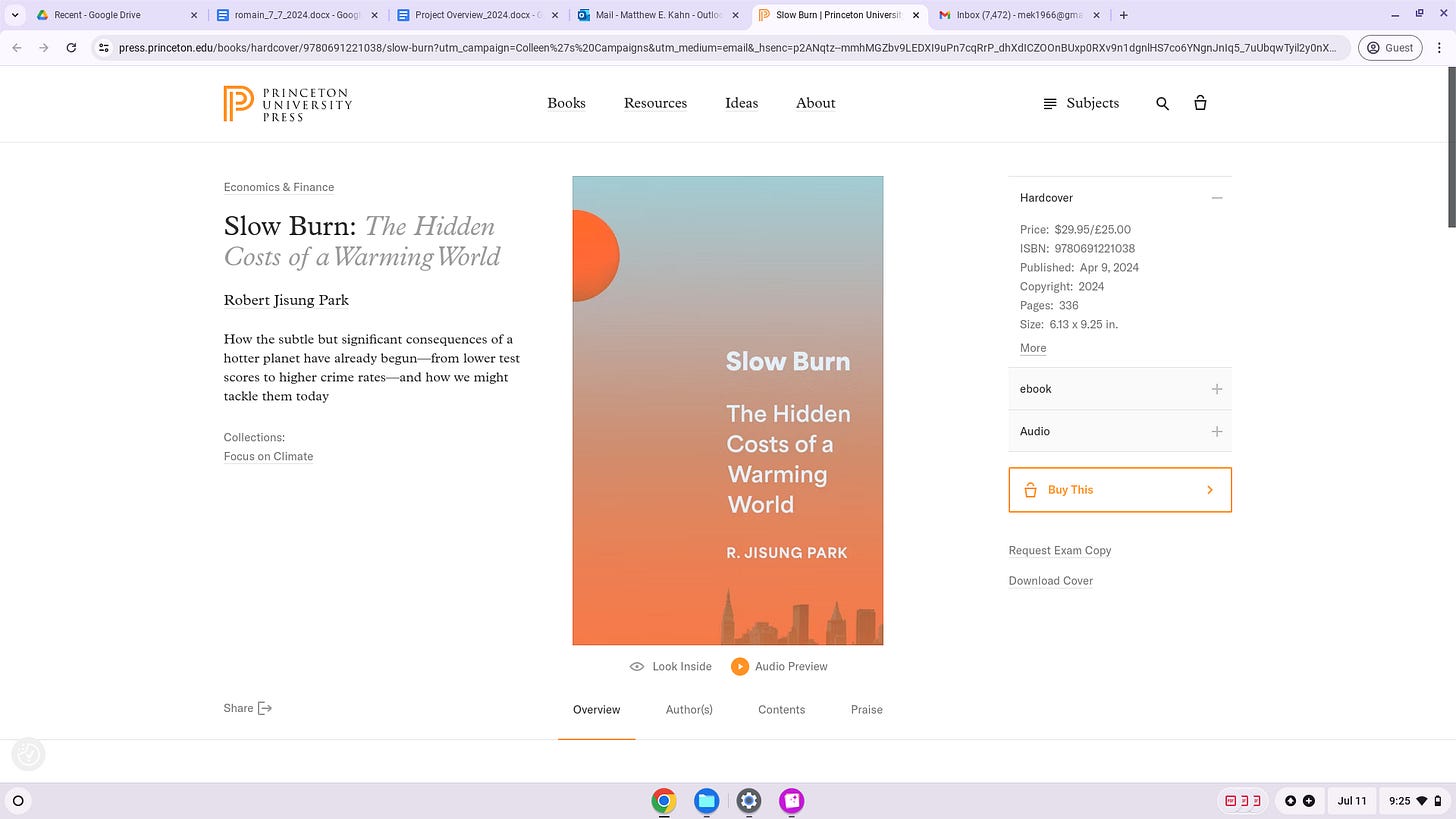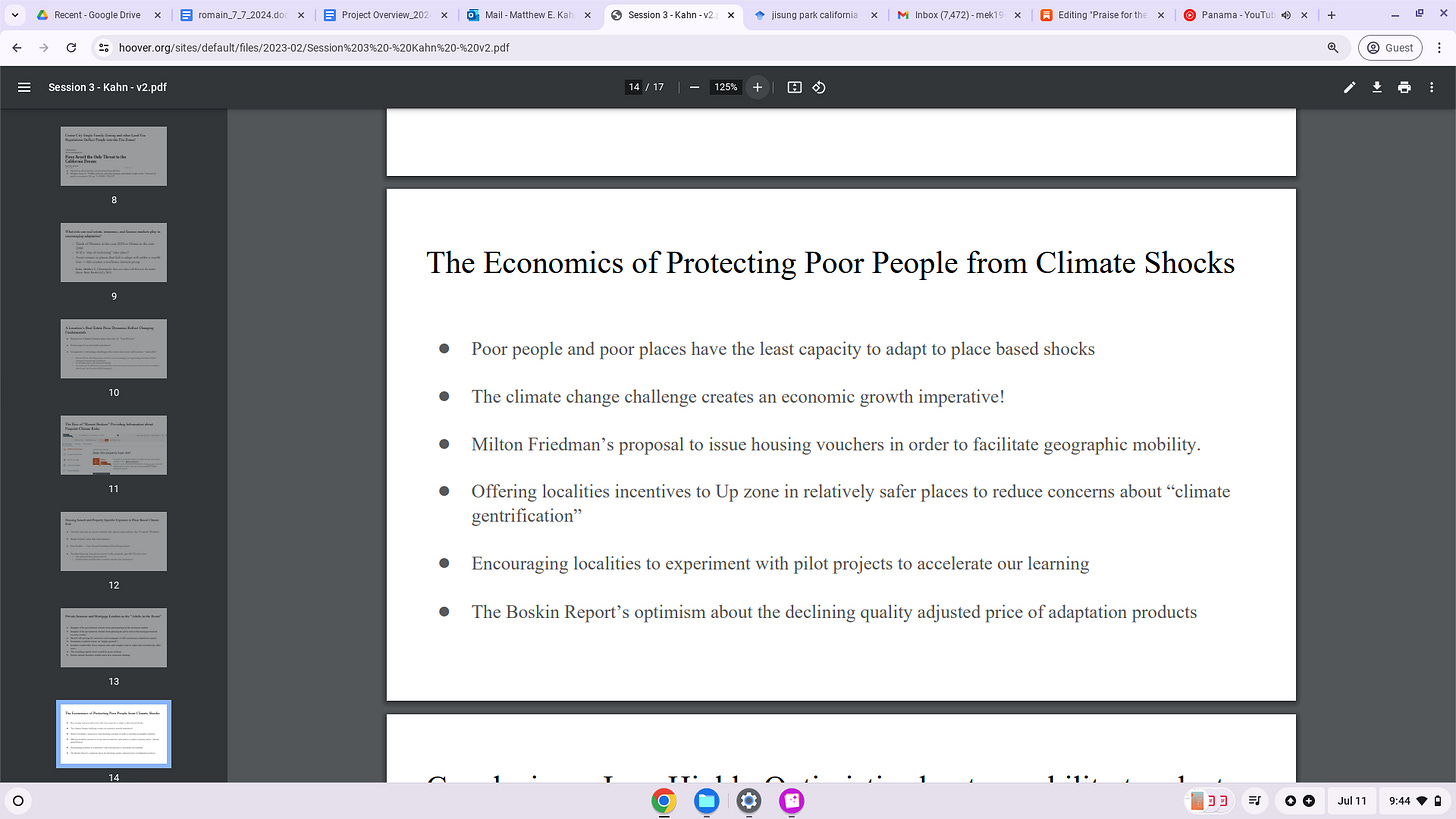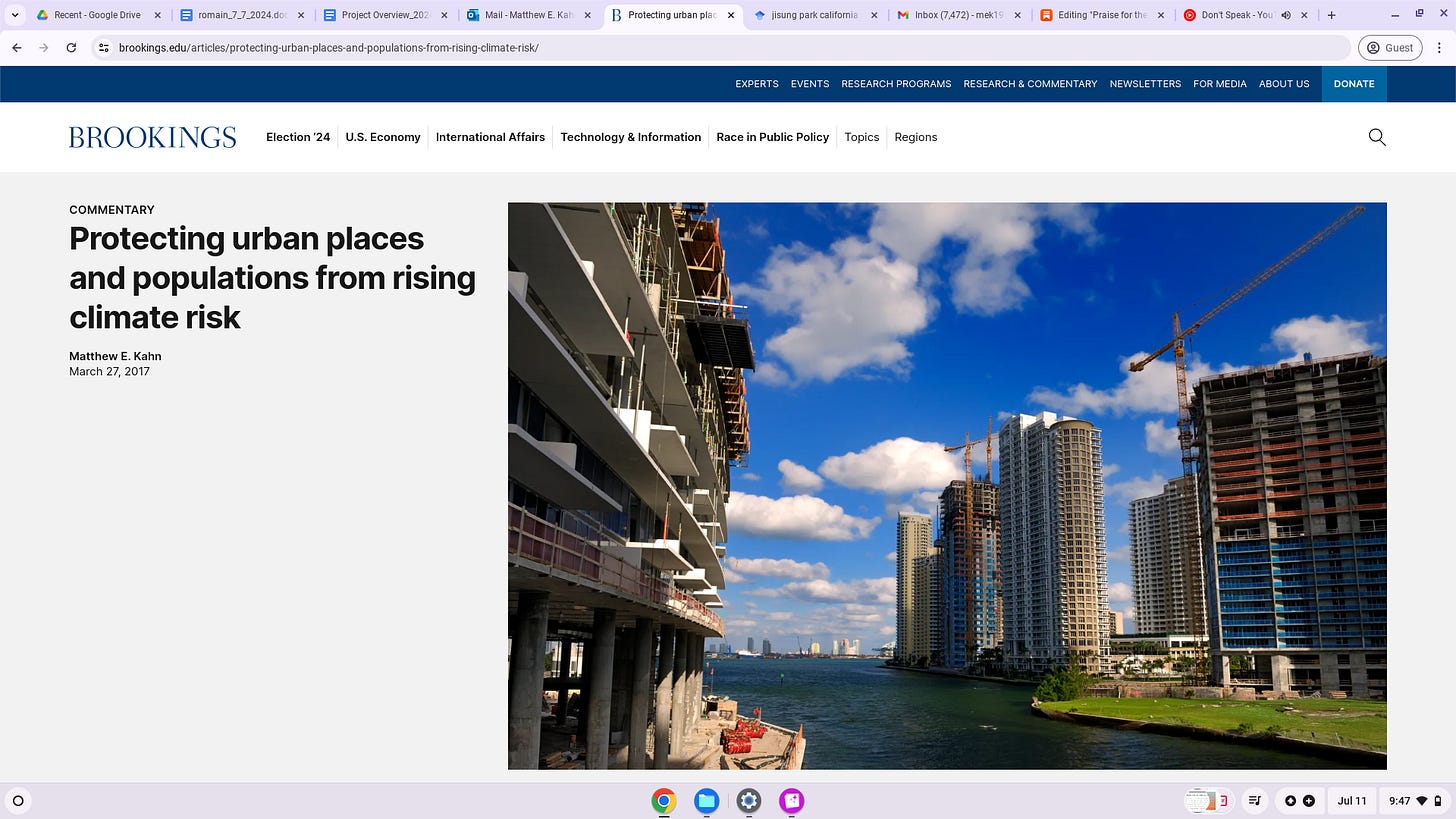I recommend that you read Slow Burn by my friend Jisung Park.
Jisung is a rising star in environmental economics. Google Scholar provides links to his papers.
In his 2024 Princeton Press book, Jisung writes for a general audience about the adapting to climate change challenge. He emphasizes the challenges that poor people face in coping with new risks. While the book is based on economic science, his caring and concern resonate. To his credit, he takes insights from his applied econometrics papers and provides an overall consistent narrative of his compassionate worldview.
In a series of careful empirical papers, Jisung has expanded my understanding of how disadvantaged people face serious challenges posed by rising heat in the United States.
Park, R. Jisung, Joshua Goodman, Michael Hurwitz, and Jonathan Smith. "Heat and learning." American Economic Journal: Economic Policy 12, no. 2 (2020): 306-39.
Park, Jisung, Nora Pankratz, and Arnold Behrer. "Temperature, workplace safety, and labor market inequality." (2021).
Behrer, A. Patrick, Nora MC Pankratz, and R. Jisung Park. "Mandated versus Voluntary Firm Investment in Climate Adaptation." (2024).
Behrer, A. Patrick, R. Jisung Park, Gernot Wagner, Colleen M. Golja, and David W. Keith. "Heat has larger impacts on labor in poorer areas." Environmental Research Communications 3, no. 9 (2021): 095001.
His book is based on what he has learned from his scientific journey.
__________________________________________________________________________
Jisung and I agree that it is essential that poor people have the capacity to cope with climate change. As Gary Becker, Sherwin Rosen, Jim Heckman student, I believe that this capacity is mainly determined by skill formation over the life-cycle. Poverty alleviation accelerates climate change adaptation. We all agree that Bezos and Musk will have great lives in our hotter future. Each year going forward, who is the poorest person who is actively coping well with the rising heat? I reject that we are “passive victims” here. If we know that we face a problem, we demand solutions and capitalists innovate. The greedy capitalism (not the President or Governor or Mayor) protects us!! Read our 2017 paper.
Here is a slide from a talk I gave at Hoover.
Here is a Policy Paper I wrote for the Brookings Institution.
Let me wrap up by discussing Steve Levitt and Freakonomics. Steve co-authored this best seller and it became a best seller as the public learned how economists play the role of a detective in “connecting the dots” between cause and effect. On some level, Jisung is a modern climate detective. He is connecting the dots between heat exposure and ugly outcomes such as scoring low on standardized tests or suffering an injury on an outdoor job.
This is very useful information. In this LSE Lecture, I argue that such “green connecting the dots” is sufficient for helping us to adapt! Why? We can only adapt to what we are aware of!! Watch my video here.
To wrap up, Jisung has written an important book. We have a friendly disagreement on the ability of the “supply side” to protect us against anticipated threats. I embrace the Boskin Report optimism that when billions of us face the same problem that capitalists raise their game and innovate and design products that help us to solve the problem. I predict that even poor people will be able to afford these products and this helps them to adapt.








It is too bad that the book looks only at the hidden costs and not any benefits.
Seconded. This book was a pleasure to read.